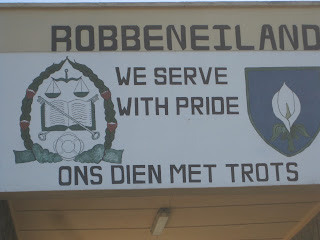Batswana are much more open to talk about Christianity, religion in general, and prayer than most folks around the world. Batswana are also interested in rain, and national calls for prayer for rain are not unusual.
The 2013 rainfall has not been very high. We have mentioned that we lose water one day each week, and right now we have no water, even though it is not our usual day to lose it.
Yesterday, near the end of our Summer Project ministry time, it clouded up and there were even a few far-off lightening bolts. The Summer Project students said it looked like rain to them. The locals, and I, laughed and said, "it never rains in Botswana in July." We said it with all sincerity, we said it with confidence, and we said it wrong.
It poured rain.
I had assured Brenda that her laundry hanging outside was NOT threatened by rain, because it wasn't going to rain.
It brought to mind this verse, James 5:17, "Elijah was a man with a nature like ours, and he prayed fervently that
it might not rain, and for three years and six months it did not rain on
the earth."
"Elijah was a man with a nature like ours..." NOT! No way I am anything like Elijah.
Vs 18 says, "Then he prayed again, and heaven gave rain, and the earth bore its fruit."
Well, there shall be Showers of Blessing indeed. The Tswana word for rain, money and blessing are all the same word, "pula".
James' point in those verses is that we ought to pray for one another. We doubt that prayer is effective so we fail to pray.
But now I have to go and wring the water out of the laundry that wasn't going to get wet from the rain.





































